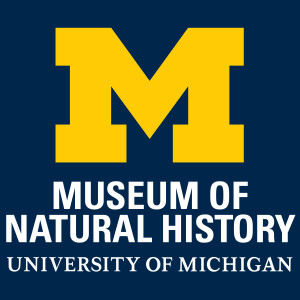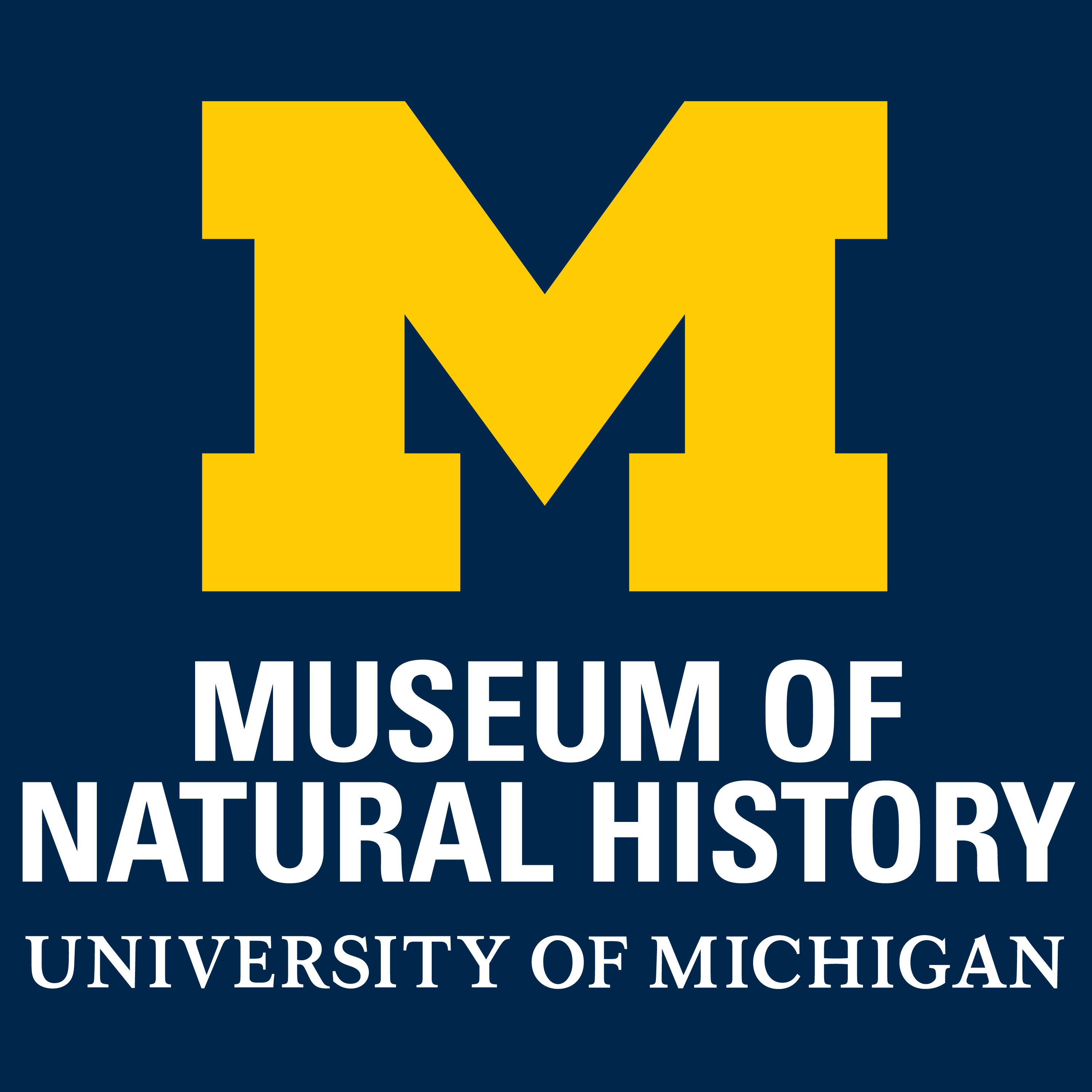
Episodes

Monday Jun 19, 2023
Science Café: Climate Solutions: Renewable Energy Storage and Carbon Capture
Monday Jun 19, 2023
Monday Jun 19, 2023
How can renewables such as wind and solar energy produce power for use when the sun isn't shining or the wind ebbs? How can we capture the carbon dioxide that is already in the atmosphere?
Join Charles McCrory of the U-M Department of Chemistry and David Kwabi of the U-M Department of Mechanical Engineering to discuss new research on renewable energy storage: using renewable electricity to charge batteries and produce chemical fuels like hydrogen that can be used for later energy generation.
We'll also discuss how renewable energy may be used to mitigate climate change by capturing and storing atmospheric carbon dioxide, or converting it into useful products.

Thursday Jan 19, 2023
Science Café: Mapping ocean biodiversity hotspots
Thursday Jan 19, 2023
Thursday Jan 19, 2023
How does ocean biodiversity change over deep time? Join Matt Friedman, director of the U-M Museum of Paleontology, and Hernán López-Fernández, chair for collections and curator of fishes in the U-M Museum of Zoology. We will discuss how Matt uses old fossil fishes to answer new questions about biodiversity hotspots in ancient oceans. Hernán will help us consider how this research can shed light on the biodiversity changes we see today.
Originally recorded November 16, 2022

Thursday Jan 19, 2023
Science Café: Of the Galaxy, and Beyond—Photos from the Webb telescope
Thursday Jan 19, 2023
Thursday Jan 19, 2023
The James Webb Space Telescope increases the clarity and resolution of space photography, both within our galaxy and beyond. What do these photos tell us so far and what can we expect in the future? What does it take to put a project like this together? Join Professor and Chair Ted Bergin from the U-M Department of Astronomy as we celebrate the return of Science Cafés with an out-of-this-world conversation.
Originally recorded on October 26, 2022.

Tuesday Feb 25, 2020
Science Café: Something Fishy in Lake Michigan
Tuesday Feb 25, 2020
Tuesday Feb 25, 2020
Great Lakes fisheries are managed intensively to reduce nutrients from fertilizer runoff and to increase game fish populations such as trout and salmon. When you add invasive species such as non-native mussels and the possibility of carp, we have a very fragile system. Join us to discuss the past, present, and possible futures of Lake Michigan fisheries with Bo Bunnell of the U.S.G.S. Great Lakes Science Center and U-M School for Environment and Sustainability, Yu-Chun Kao of MSU's Center for Systems Integration and Sustainability, and Ed Rutherford of the NOAA Great Lakes Environmental Research Lab.
Originally recorded on February 19, 2020.

Tuesday Feb 04, 2020
Science Café: DNA, Chromosome Structure, and Health
Tuesday Feb 04, 2020
Tuesday Feb 04, 2020
If you stretched the DNA in one human cell all the way out, it would be about two meters long. How does all that DNA fit into one tiny cell? How does the way it is packaged matter for human health? Join Gyorgyi Csankovszki of the Department of Molecular, Cellular, and Developmental Biology for a discussion of current research into basic cellular biology and the implications this research may have on human health. This Science Café is part of a grant from the National Science Foundation.
Originally recorded on January 22, 2020.

Thursday Dec 19, 2019
Science Café: The Secrets of Birds
Thursday Dec 19, 2019
Thursday Dec 19, 2019
Hidden in the feathers of museum specimens of birds is information on the air quality of past decades - very detailed information. These specimens also contain evidence of the impacts of recent climate change on birds. What do these birds have to say? Join Shane DuBay and Ben Winger of the U-M Museum of Zoology to discuss what bird specimens can tell us about air quality, climate change impacts, and what we can all do to help rapidly declining bird populations now.
Originally recorded on October 16, 2019.

Thursday Dec 19, 2019
Science Café: What does water sustainability have to do with microbes?
Thursday Dec 19, 2019
Thursday Dec 19, 2019
Microbes in the water take carbon from the atmosphere, break down plastics, and even cause and prevent toxic algae blooms. Join Dr. Melissa Duhaime of the U-M's Department of Ecology and Evolutionary Biology and members of her lab team to discuss the ecology of aquatic microbes, and how what we learn about them now could have huge impacts on our future.
Originally recorded November 20, 2019.
For more information on future Science Cafes, please visit our website.

Wednesday Dec 18, 2019
Wednesday Dec 18, 2019
Have you ever helped with research by doing a Christmas bird count, helping to identify photos for an online project, or participating in local water testing? Join us as we explore the potential roles of citizen and community science projects in scientific research and public policy. We’ll highlight some U-M projects, with opportunities for involvement.
-
Nyeema Harris - Applied Wildlife Ecology Lab (U-M Ann Arbor)
-
Marty Kaufman - Department of Geography, Planning, and Environment (U-M Flint);
-
Natalie Sampson - Department of Health & Human Services (U-M Dearborn)
-
Justin Schell - Shapiro Design Lab (U-M Ann Arbor Library)
For more information on future Science Cafes, please visit our website.

Wednesday Dec 18, 2019
Science Café: Politics and Psychology from Mussolini to the Alt-Right
Wednesday Dec 18, 2019
Wednesday Dec 18, 2019
A discussion of the history and social psychology of nationalist and fascist politics and what light this scholarship may or may not shed on current events.
- Joshua Rabinowitz, lecturer, U-M Psychology Department
- Dario Gaggio, professor, U-M History Department
For more information on future Science Cafes, please visit our website.

Wednesday Dec 18, 2019
Science Café: Designer Genes? Genetic engineering in the age of CRISPR
Wednesday Dec 18, 2019
Wednesday Dec 18, 2019
New technology makes gene editing easier. Its use is being explored to correct diseases caused by genetic mutations, to fight cancer, and even to learn about human evolutionary adaptations, and its potential is amazing. We'll explore the capabilities and research that CRISPR Cas9 gene editing brings, as well as its ethical, legal, and social implications.
- Jody Platt, Assistant Professor in the Department of Learning Health Sciences at the U-M Medical School
- Daniel Thiel, doctoral student at the U-M School of Public Health and Department of Sociology
- Thom Saunders, Director of the U-M Transgenic Animal Model Core
For more information on future Science Cafes, please visit our website.
